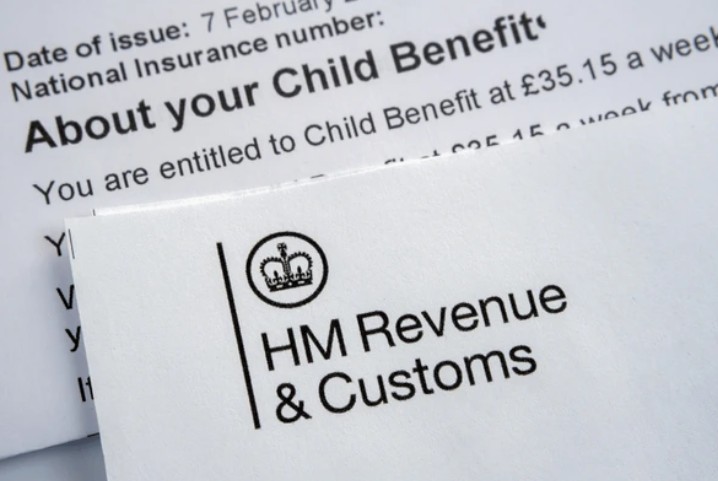What Has Triggered HMRC’s Urgent Warning to UK Parents?
In a rare nationwide alert, HM Revenue and Customs (HMRC) has issued a stern warning to parents, particularly mothers who claimed Child Benefit before 2000, that they could be missing out on vital State Pension entitlements due to a systemic error in National Insurance (NI) credit recording.
This isn’t a minor administrative glitch. It’s a decades-old data oversight involving the now-defunct Home Responsibilities Protection (HRP) scheme, which has led to potentially hundreds of thousands of people being underpaid or entirely missing years of pension coverage.
The scale is staggering: the Department for Work and Pensions (DWP) estimates that more than 210,000 individuals may have been shortchanged, and some may never have received the State Pension they were due.
Why Were Pre-2000 Child Benefit Claimants Overlooked?

The error’s origin lies in inadequate data linking processes before May 2000. Child Benefit claim forms did not require National Insurance numbers for claimants. This means that, even if they were eligible for HRP credits for caring responsibilities, those credits were often never recorded on the individual’s NI account.
These HRP credits were essential: each year of HRP protected a person’s NI record by securing the qualifying years needed for the Basic State Pension. Without them, a full pension might be out of reach.
The HRP scheme ran from 1978 to 2010, after which it was replaced with carer’s NI credits, automatically applied when claiming Child Benefit. Unfortunately, the earlier years, 1978 to 2000, have become a black hole in the pension system for many.
How Many People Could Be Missing State Pension Payments?
The DWP and HMRC believe around 210,000 people are affected, with a total underpayment estimate of £1.3 billion. However, pensions experts warn the real figure could be significantly higher, as awareness remains low.
Affected individuals could be missing:
- £20 to £60 per week in the State Pension
- Up to £12,000 in backdated lump sums
- Eligibility for other means-tested benefits, such as Pension Credit or Housing Benefit
Crucially, many affected individuals are already in retirement and may be unaware of the missing credits, particularly women in their 60s and 70s.
Who Is Most Likely to Be Affected by This Issue?
You may be affected if:
- You claimed Child Benefit between 1978 and 2000
- Your National Insurance number was not provided with the claim
- You’re receiving less than the full State Pension or were told you didn’t have enough qualifying years
- You are a widow or next of kin of someone who might have missed out
The full new State Pension (2025/26) is £221.20 per week, but missing just one year of NI contributions could reduce that amount. Some people are missing over a decade of qualifying years due to this oversight.
What is the Home Responsibilities Protection (HRP) Scheme and Why Does It Matter?

Introduced in 1978, HRP was created to protect the pension rights of those who couldn’t work due to caring responsibilities, particularly stay-at-home mothers. Each year a parent claimed Child Benefit for a child under 16, they earned one HRP year, contributing to their State Pension qualification.
To receive a full Basic State Pension, individuals needed 30 qualifying years under the HRP system (later changed to 35 years under the new system in 2016). Missing just a few HRP years could translate to thousands of pounds lost over a lifetime.
The system breakdown is that without linking Child Benefit claims to NI numbers, those years were never officially recorded, leaving large gaps.
What Steps Has the Government Taken to Fix the Issue?
In response to pressure from MPs, campaigners, and a report from the National Audit Office (NAO), the government launched a correction initiative in 2023.
Key actions include:
- Creation of an online HRP checking tool
- Publication of the CF411 form for manual correction
- Cross-departmental review of HRP eligibility data
- Proactive mail-outs to those potentially affected (though only a fraction have received letters so far)
However, many eligible individuals still haven’t been contacted, placing the burden on the public to investigate their own NI records.
How Can You Check and Correct Your NI Record?
If you think you might be affected, here’s what you need to do:
- Check your National Insurance record
Use the government’s NI checker:
www.gov.uk/check-national-insurance-record - Look for missing years between 1978–2000
Pay special attention to the years you were at home with young children - Use the HRP Checker Tool
Go to www.gov.uk/home-responsibilities-protection - Submit the CF411 application form
If HRP years are missing, fill in the form to claim them:
CF411 Application Form PDF - Wait for HMRC to update your record
If approved, HMRC will amend your NI history and inform DWP to adjust your pension - Expect a backdated payment if underpaid
Any pension shortfall will be repaid in a lump sum, followed by increased weekly payments
Can Family Members Claim for Someone Who Has Died?
Yes. If a deceased person would have qualified for missing HRP years, their estate or next of kin may be able to claim the underpaid pension.
You will need:
- Proof of death (death certificate)
- NI number of the deceased
- Confirmation of Child Benefit claims (if possible)
- CF411 form and supporting documents
This could be particularly important for widows or adult children handling estates, and it may affect inheritance tax calculations.
What Do Experts and Campaigners Say?

Baroness Ros Altmann, former pensions minister and advocate for retirement justice, has called the error:
“One of the largest, quietest injustices in the modern welfare state. Women gave up paid work to care for their children — only to be punished decades later for administrative negligence.”
The group WASPI (Women Against State Pension Inequality) stated this should be treated as a systematic failure and urged HMRC to automatically review all Child Benefit claims before 2000, rather than expecting individuals to self-identify.
Is Legal Action or Compensation Being Considered?
While no mass compensation programme beyond the corrections has been announced, legal experts say the issue could open the door for claims under maladministration, especially where it can be proven that individuals relied on government assurances.
Some MPs have called for a Parliamentary Ombudsman inquiry into the lack of public awareness campaigns and the burden placed on older citizens to correct government errors themselves.
Why Should This Matter to Everyone?
Even if you are not affected, this scandal has broad implications:
- It reveals flaws in the UK’s pension infrastructure
- Undermines trust in benefit protection policies
- Sets a precedent for future reviews of means-tested support and legacy benefits
It also disproportionately affects working-class women, who may not have access to financial advisors or the digital tools needed to check their records.
What Should You Do Right Now?
- Check your NI record today
- Share this article with friends, parents, and family members
- Submit the CF411 form if needed
- Contact your MP if you’re affected and not getting a resolution
Time is of the essence. Don’t let a clerical error cost you a secure retirement.
Final Word: Will the Government Do Enough to Restore Confidence?
This case is more than a financial blunder — it’s a test of the government’s willingness to rectify historical injustices, and to honour its social contract with citizens who trusted the system.






